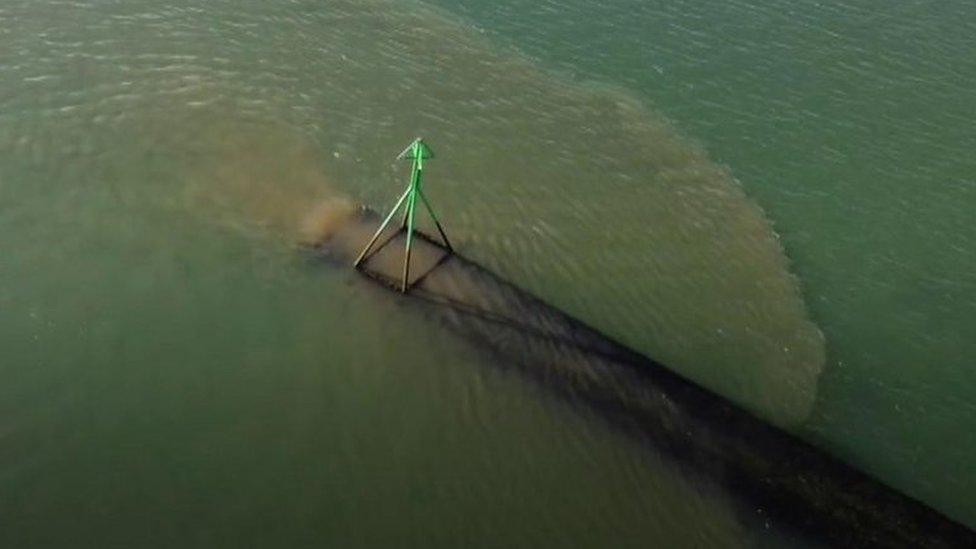E. coli: High levels found in Langstone and Chichester harbours
- Published
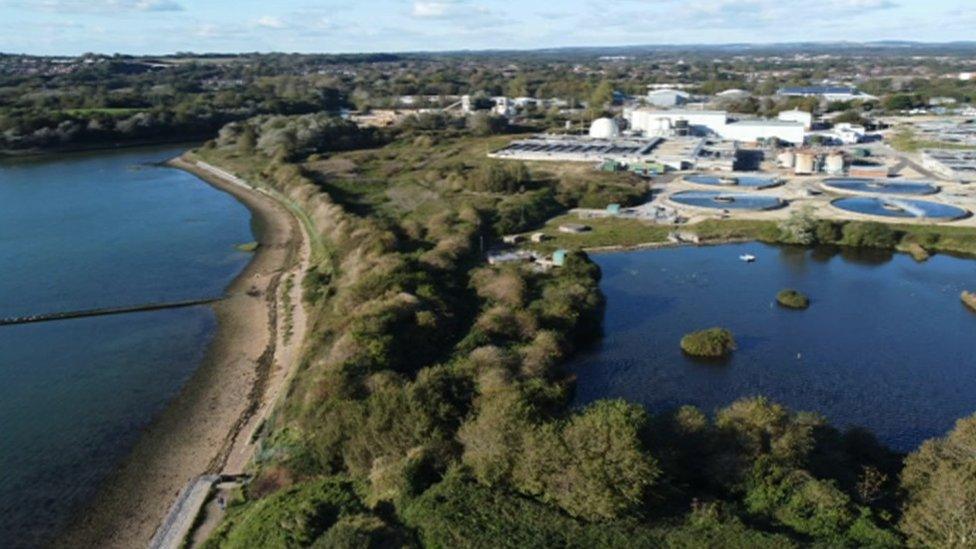
An outflow pipe (left) connects Budds Farm treatment works with Langstone Harbour
High levels of potentially harmful E. coli bacteria have been reported in two harbours by environmental campaigners.
Clean Harbours Partnership (CHP) sampled water from Langstone and Chichester harbours, off the coasts of Hampshire and West Sussex, in November.
One site near a sewage treatment works showed 760 times the maximum level of E. coli that would be allowed if it was a bathing area, CHP said.
Southern Water said it was investing to reduce discharges at both sites.
The Langstone Harbour pipe was filmed discharging wastewater in 2021
During November, a period of heavy rainfall, external, the water firm released untreated wastewater into Chichester Harbour for more than 1,000 hours and Langstone Harbour for more than 350 hours, the partnership said.
A water sample taken near an outflow pipe from Budds Farm treatment works, near Langstone, showed a reading of 380,000 colony forming units (cfu) per 100ml, which is 760 times the maximum level of E. coli, it said.
A concentration of 50,000 cfu/100ml was found at Furzefield near Bosham and 7,300 cfu/100ml at Emsworth.
Levels above 500cfu/100ml signify a risk to human health under the European Bathing Water Directive, it added.
The Environment Agency classes this level as "poor", external for coastal bathing waters.
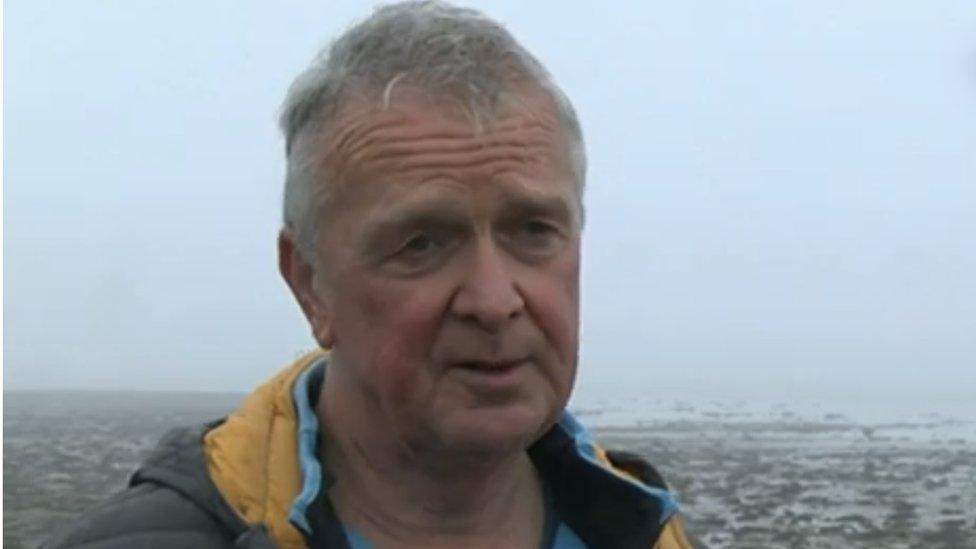
Rob Bailey from the partnership said authorities had not revealed pollution levels
Rob Bailey, of CHP, said: "We initiated this research because our local communities and water users want to know what pollution is in our harbour water. The authorities either can't or won't tell us."
Bianca Carr, from the group, added: "In the interest of public safety, we would like to see clear signage recommending that nobody uses the inshore waters after storms."
Southern Water said it was investing £22m to increase capacity at Budds Farm, reducing the risk of discharges into Langstone Harbour.
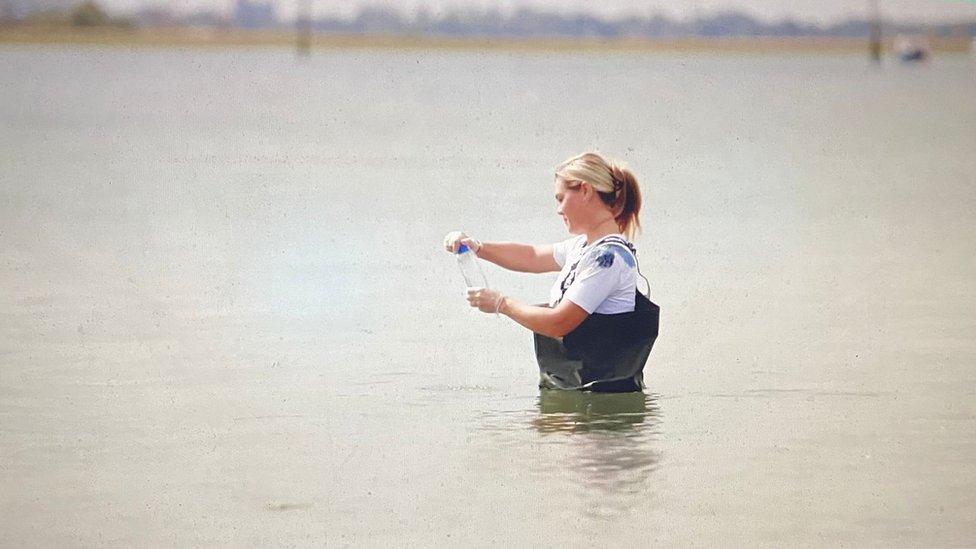
Campaigners tested the water during a period of heavy rainfall
It said: "At Chichester the wastewater treatment works have ultraviolet treatment on the outfall to further improve treated wastewater quality, while a massive new pipeline will take flows away from Chichester to be treated at Tangmere."
Previously the firm said releases, consisting of up to 98% rainwater, have been made to prevent sewers overflowing.

Follow BBC South on Facebook, external, Twitter, external, or Instagram, external. Send your story ideas to south.newsonline@bbc.co.uk, external.
- Published9 November 2022
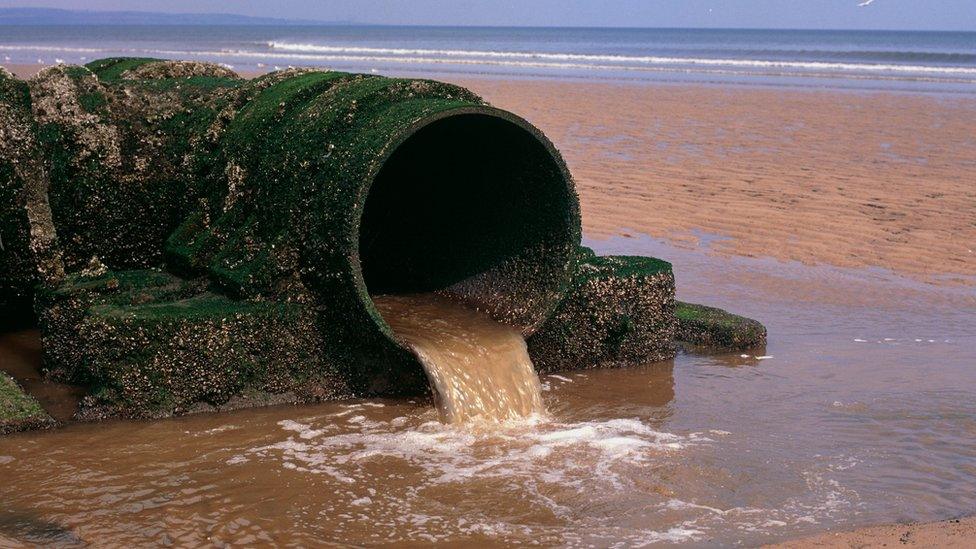
- Published7 November 2022
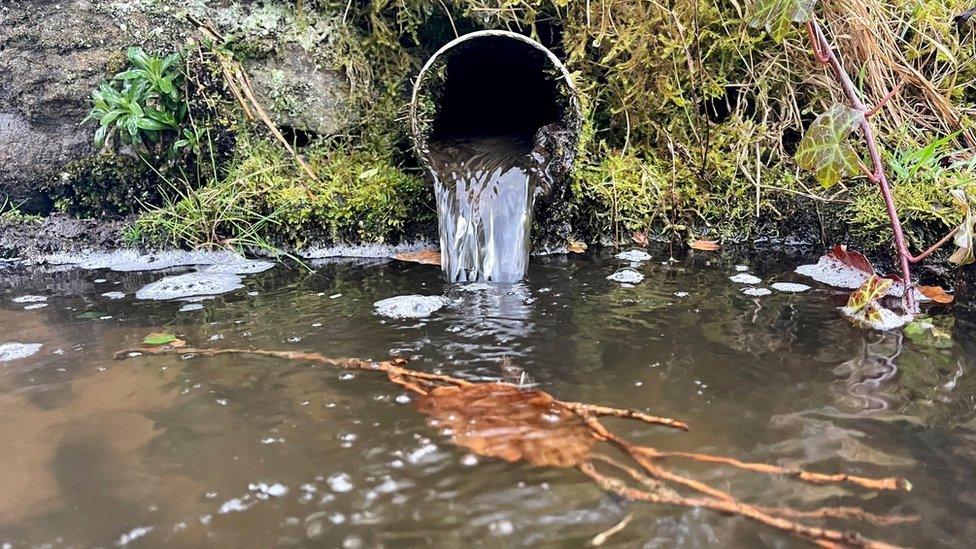
- Published20 October 2022

- Published26 October 2021
